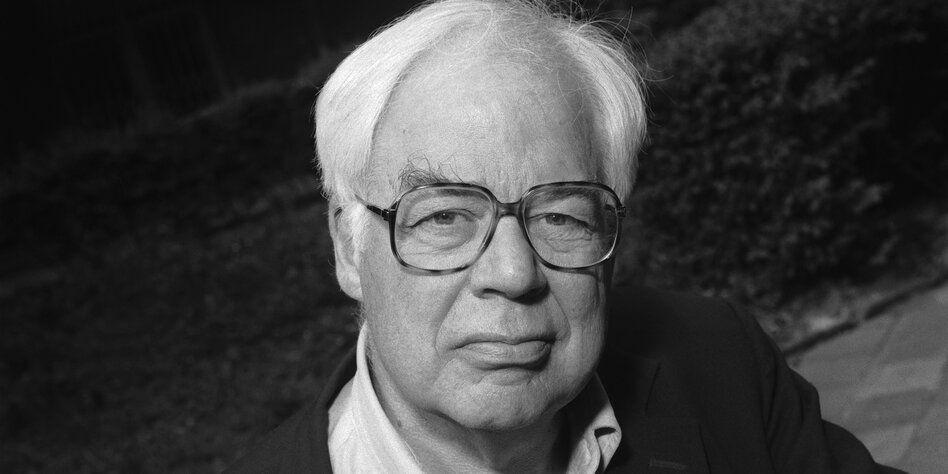Richard Rorty's Posthumous Book No Higher Truth

Posthumous book by Richard Rorty: No Higher Truth Everything is in doubt: In his posthumous lectures, Richard Rorty presents himself as a "value relativist" with moral clarity Upholding irony: Richard Rorty (1931-2007) Photo: Bridgeman Before Richard Rorty died 15 years ago, he was considered the world's greatest living philosopher.
It is of course difficult to measure this in the absence of a philosopher's scale, but in terms of influence and citations this judgment is certainly correct He had previously been diagnosed with pancreatic cancer, he wrote to his friend Jürgen Habermas, the same disease “that killed Derrida”.
His daughter, according to the accomplished ironist Rorty, therefore hypothesizes that this type of cancer stems from "reading too much Heidegger" Suhrkamp Verlag is now presenting one of Rorty's most fundamental works, namely lectures in which he spells out the essential core points of his philosophical thinking.
The title of the series of lectures is “Pragmatism as Anti-Authoritarianism”, in which Rorty attempts nothing less than “the completion of the Enlightenment”, as his philosopher colleague Robert B Brandom notes in the introduction.
If Enlightenment freed reason from the clutches of authority and theology, from metaphysics and any ultimate justifications, then, we can interpret Rorty, it stopped halfway (or at least just short of the goal) Again and again she searched for “truth”, for universal validity, but bit her own tail with it.
Greater than the subject, she proclaimed the imperative on the one hand, to use one's own reason in order to escape from the subject's self-inflicted immaturity, she was always brooding over something that was greater than this subject Rorty, on the other hand, said: "Truth is nowhere out there," it exists neither independently of the language utterances nor of the traditions and limitations of those who speak it.
Thinking must do without authority - the basic thesis that gave the title Later he had to listen – for example from the recently deceased Pope Joseph Ratzinger – to be a pioneer of a diabolical value relativism; Rorty himself, in his laconic way, abhorring overly grandiose formulas, remarked that "pragmatists like myself sympathize with the anti-metaphysical, 'postmodern' thinkers".
Rorty is not implying that this becomes clear once again in his lectures, that everything is the same and that value judgments should not be made – on the contrary He only emphasizes that they have neither higher truths nor deeper insights about an alleged "being" behind the "apparitions".
Our feeling for "moral abomination", for example, is a "correctable cultural legacy", it does not arise from objectivity, but arises "through intersubjectivity" Not truth, but hypothesis That all human beings should become brothers cannot be proclaimed as truth, but at most as a hypothesis that has to prove that in practice it would make “human life better in the future”.
And the hypothesis could certainly provide this proof Rorty: "So I think that the subject of 'truth' can have no relevance for democratic politics.
” Of course, as a university teacher, he also wanted to “educate” Just as the SS men wanted to educate the Hitler Youth to be cruel, he wanted to “re-educate” his students to become democratic subjects who upheld equality.
He only thinks that there is no unnatural authority beyond human interaction that can certify that his motive is "truer" than that of the SS men In this way, Rorty deconstructed all concepts of metaphysical forms of disappearance such as truth, the sublime, "reality" (the latter does not exist beyond communicative practices) and other claims to absoluteness.
Human rights are also a construction, and the assertion that they have always existed - i e.
even before they were recognized - is a meaningless statement What we casually call a moral law is a "concrete network of social practices".
In his major work, Contingency, Irony, and Solidarity, Rorty characterized the Ironist as a person "who faces the fact that her core beliefs and needs are contingent"—that is, accidental and changeable, a person who "continually doubts the final vocabulary (cherishes) that she is using' Deconstruction with a point of view None of this culminates in Rorty's relativism in the sense of a lack of a point of view through the deconstruction of everything.
Born in New York City to undogmatic labor activists, the goal of a fairer world was always the Pole Star, which he followed, and in the last years of his life he increasingly threw himself into political debates, not least with his small book "Achieving our Country" He gave many interviews, polemicized against a cultural left based on difference and language games that forgets the needs of ordinary people, and criticized the "weak and ineffective opposition" that the US Democrats had become.
He was very busy, which is also why he most likely neglected to get the lectures that were published so late to the printer forgetting the needs of ordinary people, criticized the "weak and ineffective opposition" that the US Democrats had become.
He was very busy, which is also why he most likely neglected to get the lectures that were published so late to the printer forgetting the needs of ordinary people, criticized the "weak and ineffective opposition" that the US Democrats had become.
He was very busy, which is also why he most likely neglected to get the lectures that were published so late to the printer .
Post a Comment for "Richard Rorty's Posthumous Book No Higher Truth"